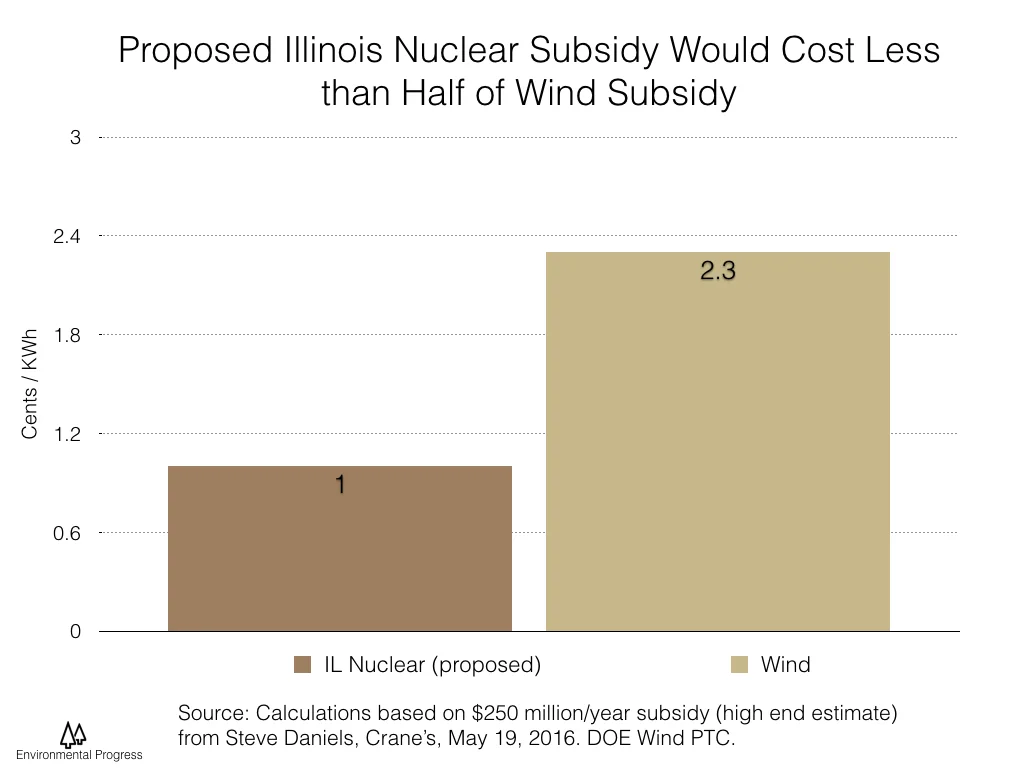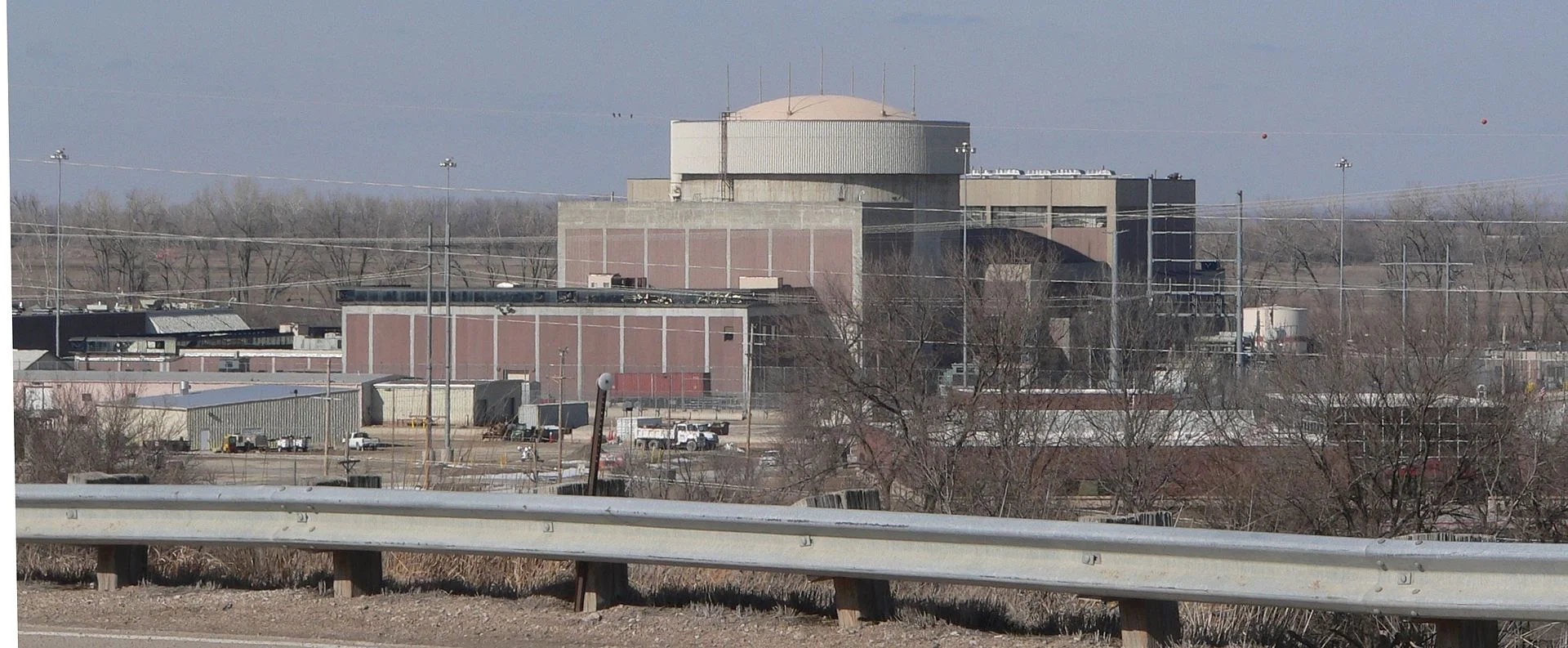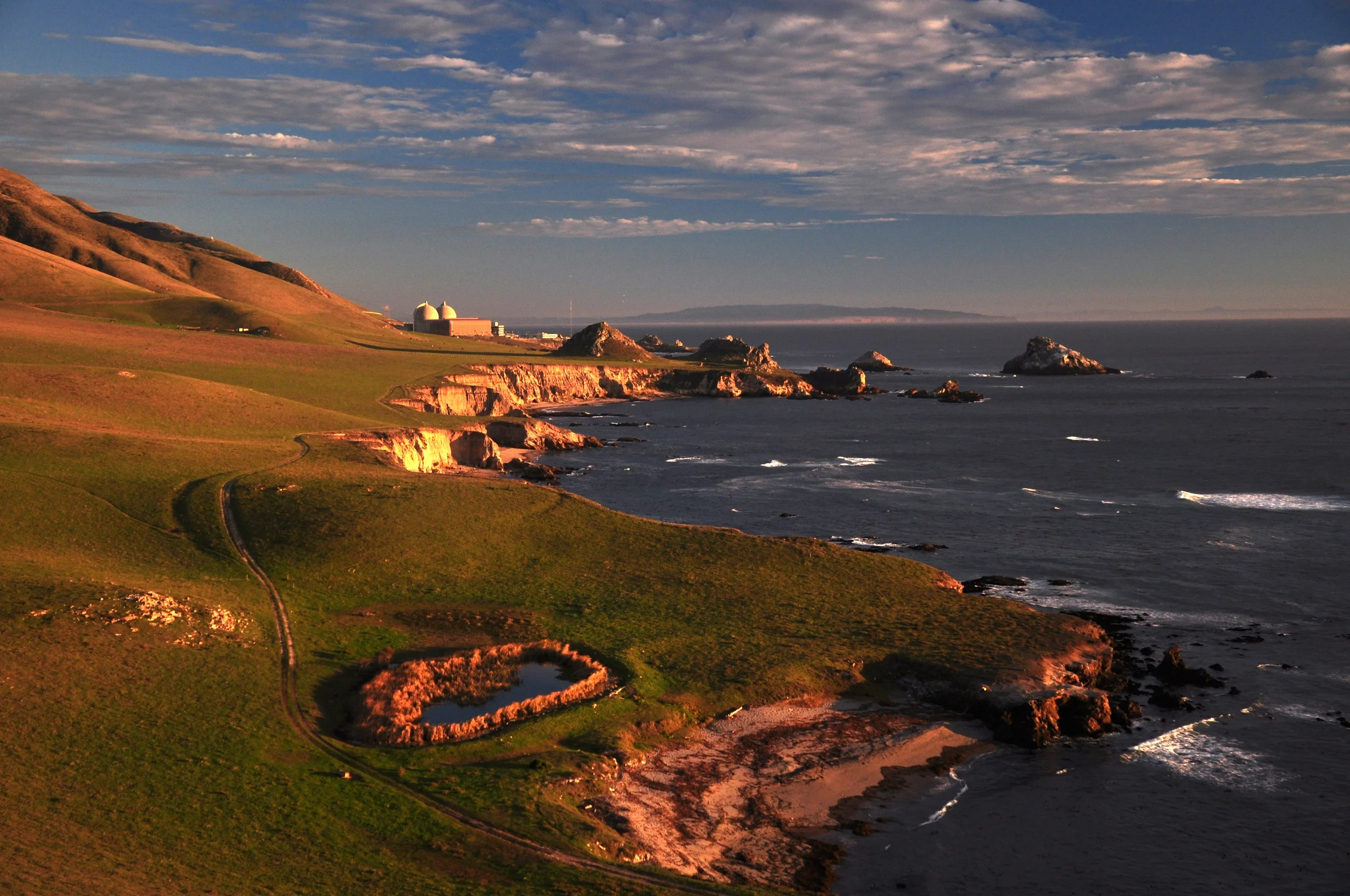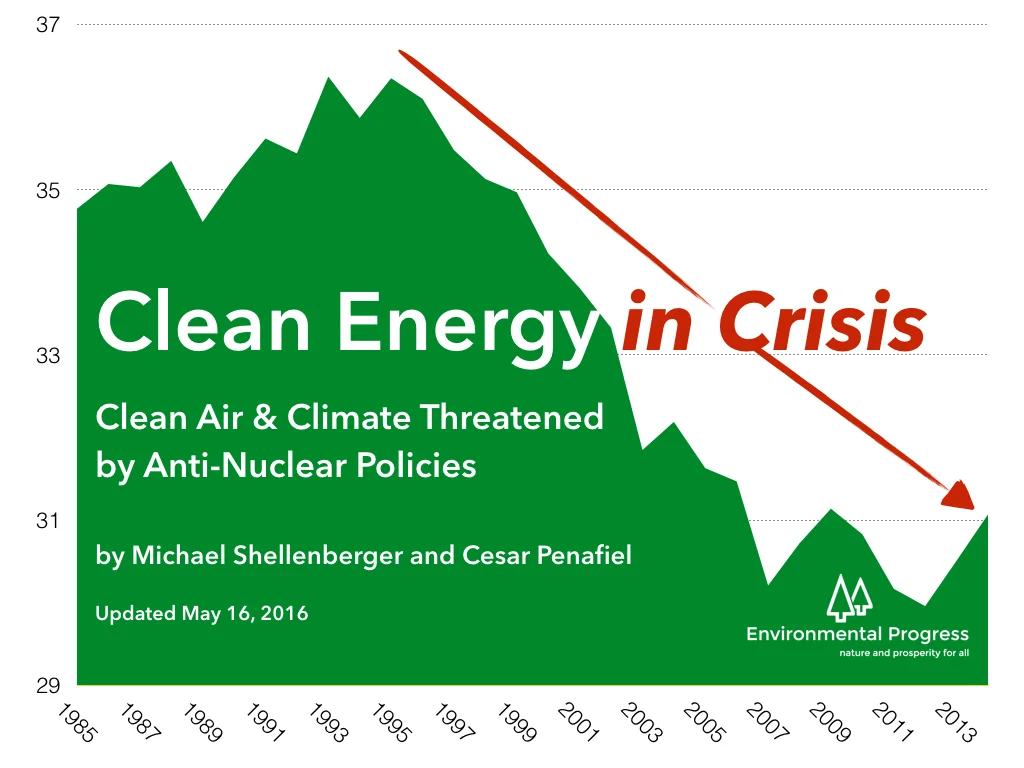We applaud the proposal by the New York State’s Department of Public Service (NYSDPS) for a Clean Energy Standard (CES) that includes a Zero-Emissions Credit (ZEC) for nuclear power plants. If New York loses its nuclear power plants they will be replaced by fossil fuels, and greenhouse emissions from the state’s power sector would skyrocket roughly 50 percent. The proposed Clean Energy Standard’s Zero-Emissions Credits would likely generate economic benefits four times larger than the maximum cost. In recognizing the value of zero-emissions power, the proposed CES and ZEC will ensure New York retains its leadership on climate change and clean energy.
Read More"What is absolutely outrageous is to suggest you can take Diablo Canyon offline and not increase our dependence on methane, fracked gas and not increase carbon emissions,” said Michael Shellenberger, president of Environmental Progress, a pro-nuclear environmental group based in Berkeley.
Read MoreIndependent and industry experts agree that carbon emissions would rise from increased natural gas use were Diablo Canyon nuclear power plant to close. "California's current emissions cap is very unlikely to be binding," said UC Berkeley economist Severin Borenstein, "so losing Diablo would raise emissions.” PIRA Energy Group found natural gas use would rise 34 percent in northern California. And electricity expert Revis James called the deal "risky, complex and expensive."
Read MoreDiablo Canyon will be mostly replaced by natural gas and emissions will increase if the Joint Proposal by PG&E, IBEW 1245, and anti-nuclear groups is approved by the California Public Utilities Commission (CPUC) and upheld by the courts. Further, the percentage of electricity PG&E derives from low-carbon energy sources will decline from 58 to 55 percent. How do we know? Because we read the fine print.
Read MoreThe back-room Diablo Canyon deal — negotiated by corrupt institutions behaving unethically and perhaps illegally — will fail. It will fail because it will would put our children and grandchildren at risk. It will be rejected by the people of California, policymakers and the courts because of the human suffering and environmental harm it would cause. It will fail because everyone now knows — and Sierra Club and NRDC have admitted — that closing nuclear plants will increase fossil fuels and carbon emissions. It will fail because when people understand that the proposal is based on a big lie — that Diablo can be closed without increasing fossil fuel use, methane emissions and carbon emissions — they will reject it, and the leadership of the institutions who negotiated it.
Read MoreThe Illinois Environmental Protection Agency (EPA) says if Illinois nuclear plants are closed they would be replaced mostly by coal. Meanwhile, the head of Illinois anti-nuclear organization Environmental Law and Policy Center — which is funded by fossil fuel interests and other energy companies that would benefit from closing nuclear plants — has doubled down on his efforts to increase carbon emissions by closing nuclear power plants and replacing them with fossil fuels.
Read More
Illinois Attorney General, Lisa Madigan, claims Illinois ratepayers bailed out the state’s nuclear plants, and that Exelon is simply seeking corporate welfar. This is simply false. Illinois nuclear plants were never subsidized by ratepayers using any standard definition of the word "subsidy." By contrast, solar and wind have been heavily subsidized for over a decade — and Attorney General Madigan strongly supports those subsidies. What we need is fair and equal treatment of all forms of clean energy. Madigan should embrace this principal of fairness and equality.
Read MoreOver the last few months we've seen growing recognition by Democratic political leaders that efforts to close nuclear plants prematurely are disastrous for the climate. Hillary Clinton said efforts to prematurely retire nuclear plants "put ideology ahead of science and would make it harder and more costly to build a clean energy future." Energy Secretary Ernie Moniz said, "We're supposed to be adding zero-carbon energy sources not subtracting them." And Senator Cory Booker endorsed extending the nuclear the same subsidy wind energy receives: "I know the challenges global warming [presents]... We've got to support the existing fleet."
Read MoreBy Will Boisvert
Once again a money-losing nuclear plant gets the axe while cheap renewables flourish. And once again, that seemingly hard-headed verdict hinges less on economic reality than on one-sided subsidies and biased policies that derail the environmental progress they are supposed to promote.
The utility says that closing Fort Calhoun will save up to $1 billion over the next two decades. The lost output would be replaced by a mix of wind power (42 percent), a smidge of gas-fired generation (2 percent) and a lot of efficiency and demand-response to lower electricity consumption. Retiring the plant, in OPPD’s view, is financially smart and impeccably green. But while that proposal sounds both cheap and clean, it’s actually a long step backwards for the utility’s decarbonization program.
Read More"Nuclear is without a question the most important environmental technology in the 21st century," said Michael Shellenberger, an advocate for nuclear power and president of Environmental Progress.
He said nuclear is the highest rung on the energy ladder that civilizations climb as they move to denser fuels from biomass, to coal, to oil, to gas and finally to uranium. "From an energy and environmental and development perspective, I want everybody to go up the hierarchy of energy," Shellenberger said.
Read MoreIllinois legislation that would have prevented the premature closure of two nuclear plants has been killed by environmental groups and an alliance of fossil fuel companies.
Read MoreLast December, Michael Shellenberger crossed the threshold from analysis to activism.
The co-founder of the Breakthrough Institute, an Oakland, Calif.-based environmental think tank, concluded that the threat of climate change is severe and that one of the most potent weapons to combat it, nuclear energy, is in peril.
"I really wanted to dedicate myself to our largest source of clean energy," said Shellenberger, 44. "There's just really urgency everywhere."
Read MoreClean energy as a percentage of global electricity has been in decline for two decades. This is not just because fossil fuels are expanding more rapidly than clean energy, but also because the amount of electricity the world generates from nuclear energy has been on the decline. While solar and wind have grown significantly, they have not grown enough to make up for lost nuclear. Now, in a new analysis, EP finds that unless something changes, things are about to get much worse. In the US, 13 nuclear plants are at high-risk of closure within the next 24 months, and half of all U.S. plants are at risk of premature closure over the next decade and a half. If that happens, the resulting higher carbon emissions will wipe out 43 percent of the EPA’s planned Clean Power Plan reductions.
Read MoreMichael Shellenberger is an environmentalist.
He’s also an advocate for an energy source that many in the green movement deplore — nuclear power.
But that wasn’t always the case.
Shellenberger used to be a rabid anti-nuclear activist who, in his words, tried to “clog the toilet” to stall or shelf nuclear projects such as the Ward Valley radioactive waste dump in the eastern Mojave Desert.But in the face of the ramifications of a warming planet, the 44-year-old father of two has joined a number of greens such as climate scientist James Hansen calling for a reassessment of nuclear energy as the cleanest energy source to combat climate change.
For those who regard nuclear power as inherently dangerous in the wake of the 2011 accident in Fukushima, Japan, and the disaster at Chernobyl 30 years ago, advocating for more nuclear power amounts to almost a form of environmental heresy.
Read MoreTime is running out for Illinois policymakers to protect Illinois’ largest source of clean, low-carbon electricity. Four weeks ago over 60 climate scientists and conservationists wrote an open letter to Illinois lawmakers, urging swift and fair action.
Read More

















